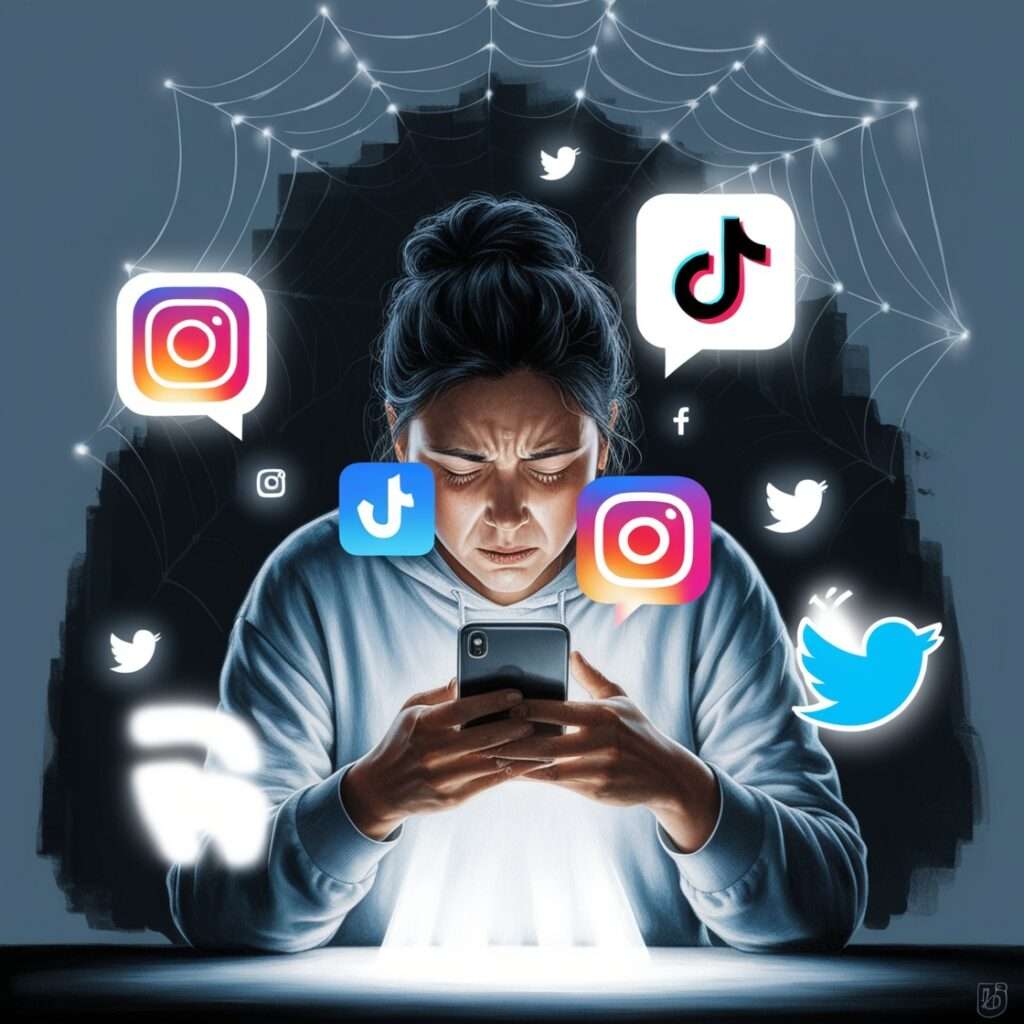
In today’s digital world, social media has become a daily part of our lives. Platforms like Facebook, Instagram, TikTok, and Twitter are places where people connect, share, and communicate. However, behind all the fun and interaction, there is a darker side that many are now becoming aware of: social media addiction. This issue has led to an increasing number of social media addiction lawsuits, raising questions about whether these platforms are responsible for the addictive nature of their designs.
What is Social Media Addiction?
Social media addiction refers to the excessive and uncontrollable use of social platforms, leading to a negative impact on a person’s mental and emotional well-being. People who are addicted to social media often spend hours scrolling through feeds, liking posts, and watching videos. It has been found that this addiction can lead to anxiety, depression, and other mental health issues, particularly in teenagers and young adults.
Why Are People Filing Social Media Addiction Lawsuits?
Over the past few years, several social media addiction lawsuits have been filed against big tech companies. These lawsuits claim that platforms are designed to keep users engaged for as long as possible, encouraging addictive behavior. The algorithms used by these platforms are specifically built to show content that triggers emotional responses, making it difficult for users to stop scrolling.
Parents, mental health advocates, and former users are at the forefront of these lawsuits, accusing social media companies of knowingly causing harm to their users. A growing number of social media addiction lawsuits are being filed by parents whose children have suffered from depression, anxiety, or even suicidal thoughts due to overuse of these platforms.
Read more about Social Media Lawsuit
How Are Social Media Platforms Being Held Responsible?
The basis of most social media addiction lawsuits revolves around the idea that these companies have created harmful, addictive products. Legal arguments often compare social media platforms to dangerous products like tobacco or alcohol, which also pose risks to consumers. In these lawsuits, plaintiffs argue that social media companies should be held accountable for knowingly creating an addictive product without adequate warnings or safeguards for users.
Many believe that the mental health problems caused by social media addiction are similar to physical harm caused by defective products. Thus, they argue that just like any company would be held liable for a dangerous product, social media companies should face the consequences for their role in addiction.
Impact on Mental Health
The emotional and mental toll of social media addiction is one of the primary concerns in these lawsuits. According to research, prolonged use of platforms like Instagram and TikTok can negatively affect self-esteem and body image. Teenagers, in particular, are at risk, as they spend hours comparing themselves to others, which can lead to feelings of inadequacy.
Several social media addiction lawsuits highlight cases where young people developed severe depression after becoming hooked on these platforms. The addictive nature of social media can also disrupt sleep, reduce productivity, and increase stress levels, which contributes to a cycle of addiction.
The Legal Battle Ahead
As more social media addiction lawsuits are filed, courts will have to decide if social media companies should be held accountable for the damage caused by their platforms. Some lawsuits aim to force social media companies to change their algorithms, provide warnings about the potential risks of addiction, or compensate those affected by the addiction.
Though it’s still unclear how these lawsuits will end, they have already started a larger conversation about the responsibility social media companies have toward their users. If these social media addiction lawsuits are successful, it could lead to major changes in how social platforms operate.
How to Protect Yourself from Social Media Addiction
While legal battles continue, it’s important for individuals to take steps to protect themselves from falling into the trap of social media addiction. Here are a few ways to manage your social media use:
- Set time limits: Use built-in tools or apps that monitor your time spent on social media.
- Take breaks: Make time to disconnect and engage in real-life activities.
- Be mindful of your emotions: Pay attention to how you feel after using social media. If you notice negative emotions like anxiety or stress, it may be time to cut back.
- Follow positive accounts: Surround yourself with content that uplifts and inspires rather than contributes to negative comparisons.
Conclusion
As the number of social media addiction lawsuits continues to rise, the spotlight is firmly on how these platforms are designed and their effect on mental health. While social media offers many benefits, the potential for addiction cannot be ignored. Companies may soon be forced to take responsibility for their role in this growing issue. Until then, individuals must take action to control their social media usage to protect their mental well-being.
